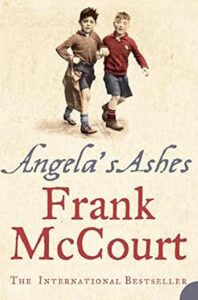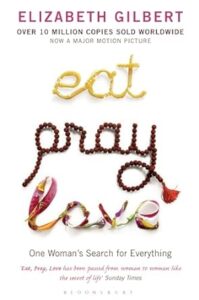Types of memoirs include personal, family, travel, career, addiction and recovery, illness and death, cultural/historical, political, celebrity, nature and environment, spiritual/religious and sports memoirs. Memoirs are a unique way for authors to share their life experiences, reflections and emotions through writing. They differ from autobiographies or biographies as they focus on specific events, relationships or periods in the author’s life. The subjective and personal perspective that characterises memoirs can give readers deep insights into the author’s thoughts and emotions.
This article explores the key features of memoirs and 12 types of memoirs, how to choose the appropriate type of memoir to write and how to prepare it for publication.
- What is a memoir?
- 12 types of memoirs
- When to write a memoir?
- How to choose the type of memoir to write?
- How to prepare a memoir for publication?
- Resources for writing a memoir
What is a memoir?
A memoir is a form of autobiographical writing that focuses on the author’s experiences, memories and reflections. Unlike an autobiography or biography, which typically covers a person’s entire life, a memoir is more selective, often concentrating on specific events, relationships or periods. A subjective and personal perspective characterises memoirs, as the author shares their thoughts, emotions and insights into their own life.
Key features of a memoir
- Subjectivity: Memoirs are inherently subjective since they are based on the author’s personal experiences and perceptions. The author’s unique perspective and interpretation of events shape the narrative in a memoir.
- Selective focus: Memoirs focus on specific themes, events or relationships rather; they do not provide a comprehensive account of the author’s life. This selectivity allows memoirs to create an in-depth exploration of particular aspects.
- Reflection: Memoirs often involve introspection and reflection on the part of the author. They may explore the impact of events on the author’s personal growth, relationships or worldview.
- Emotional tone: Given their personal nature, memoirs often convey a range of emotions, from joy and triumph to pain and struggle. The author’s emotional journey is a significant aspect of the memoir narrative.
What types of memoirs are there?
Memoirs come in various forms. 12 most common types of memoirs include personal, family, travel, career, addiction and recovery, illness and health, cultural/historical, political, celebrity, nature and environment, spiritual/religious and sports memoirs.
#1 Personal memoirs

Personal memoirs are autobiographical accounts focus on the author’s personal experiences, emotions and reflections. They often cover a specific period in the author’s life.
Examples of a personal memoir
- Angela’s Ashes by Frank McCourt depicts the author’s struggles and experiences growing up in poverty in Ireland.
- The Glass Castle by Jeannette Walls explores the author’s unconventional and challenging childhood with her dysfunctional family.
#2 Family memoirs
Family memoirs centre around the author’s family history, dynamics and relationships. They may explore generational stories, family traditions and the impact of familial connections on the author’s life.
Examples of a family memoir
- The Liars’ Club by Mary Karr discusses the author’s turbulent childhood and the complexities of her family relationships.
- Fun Home by Alison Bechdel explores the author’s relationship with her father and her coming-of-age as a lesbian.
#3 Travel memoirs

In travel memoirs, authors recount their adventures and experiences during their travels. These memoirs often reflect on the places visited, cultures encountered and personal growth throughout the journey.
Examples of a travel memoir
- Eat, Pray, Love by Elizabeth Gilbert chronicles the author’s journey of self-discovery through Italy, India and Indonesia.
- Wild by Cheryl Strayed recounts the author’s solo hike on the Pacific Crest Trail and her journey of healing and self-discovery.
#4 Career memoirs
Career memoirs detail the author’s professional life, including their career path, challenges faced and lessons learned. They can provide insights into specific industries or professions.
Examples of a career memoir
- Kitchen Confidential by Anthony Bourdain details the author’s experiences and challenges working in the culinary industry, from humble beginnings to stardom.
- This Is Going to Hurt by Adam Kay offers a poignant and eye-opening glimpse into the life of a former junior doctor. It highlights the challenges, absurdities and emotional toll of working in the health care system.
#5 Addiction and recovery memoirs

Addiction and recovery memoirs address issues of addiction, substance use disorder or other personal struggles. They often chronicle the author’s journey towards recovery and sobriety.
Examples of an addiction and recovery memoir
- A Million Little Pieces by James Frey explores the author’s struggles with substance use disorder and his path to sobriety.
- Beautiful Boy by David Sheff offers a father’s perspective on his son’s battle with addiction.
#6 Illness and health memoirs
In illness and health memoirs, authors share their experiences dealing with illnesses, either their own or that of a loved one. These memoirs often explore themes of resilience, coping with and the impact of health challenges on one’s life.
Examples of an illness and health memoir
- When Breath Becomes Air by Paul Kalanithi reflects on life, death and the author’s experience as a neurosurgeon facing terminal cancer.
- The Year of Magical Thinking by Joan Didion explores the author’s grief and coping mechanisms following the death of her husband.
#7 Cultural or historical memoirs

Cultural/historical memoirs address a specific cultural or historical context provide a personal perspective on significant events, movements or societal changes.
Examples of a cultural or historical memoir
- The Diary of a Young Girl by Anne Frank provides a personal perspective on the Holocaust during World War II.
- The Hare with Amber Eyes by Edmund de Waal explores a family’s history and the impact of historical events on their lives.
#8 Political memoirs
Political memoirs are written individuals involved in politics and offer insights into their experiences, decision-making processes and the political landscape during their time in office.
Examples of a political memoir
- Dreams from My Father by Barack Obama offers insights into the early life and political journey of the former US president.
- My Life by Bill Clinton provides a detailed account of Bill Clinton’s life, presidency and political experiences.
#9 Celebrity memoirs

Celebrity memoirs describe experiences of well-known individuals, such as actors, musicians or other public figures. These memoirs often provide behind-the-scenes glimpses into their lives, careers and the challenges they faced.
Examples of a celebrity memoir
- Bossypants by Tina Fey offers a humorous and candid look at the author’s life, career and challenges in the entertainment industry.
- The Long Hard Road Out of Hell by Marilyn Manson (co-authored with Neil Strauss) explores the controversial musician’s life and career.
#10 Nature and environment memoirs
In nature and environment memoirs, authors share their connections with nature, environmental concerns and experiences in natural settings. These memoirs may explore themes of conservation, ecology and the author’s relationship with the natural world.
Examples of a nature and environment memoir
- Pilgrim at Tinker Creek by Annie Dillard reflects on the author’s observations and experiences in the natural world.
- A Sand County Almanac by Aldo Leopold discusses conservation, ecology and the author’s relationship with nature.
#11 Spiritual or religious memoirs

Spiritual/religious memoirs focus on the author’s spiritual or religious journey explore their beliefs, practices and the impact of faith on their lives.
Examples of a spiritual or religious memoir
- The Seven Storey Mountain by Thomas Merton details the author’s journey to monastic life and his exploration of faith.
- The Glass Bead Game by Hermann Hesse explores themes of spirituality, intellectualism and the search for meaning.
#12 Sports memoirs
Sports memoirs are written by athletes or individuals involved in the sports industry and chronicle the author’s career highlights, challenges faced and the personal and professional growth experienced through their involvement in sports. They may also offer insights into the sports culture and the author’s reflections on competition, teamwork and dedication.
Examples of a sports memoir
- Open by Andre Agassi provides insights into the tennis career, personal struggles and growth of the tennis legend.
- The Blind Side by Michael Lewis tells the story of the NFL player and his journey from homelessness to football success.
When to write a memoir?
Deciding to write a memoir is a personal choice that often depends on individual experiences, motivations and a sense of purpose. Here are some circumstances and considerations that might prompt someone to write a memoir:
- Unique life story: If you have a compelling or unique life story that you believe others could learn from or find inspiring, a memoir can be a powerful medium to share your experiences.
- Overcoming challenges: If you have faced significant challenges, adversity or hardships and have found a way to overcome them, writing a memoir can serve as a testament to resilience and offer hope to others in similar situations.
- Personal growth and reflection: Writing a memoir can be therapeutic and reflective, allowing you to make sense of your life and understand your personal growth.
- Historical or cultural significance: If your life is intertwined with historical events or cultural shifts, documenting your experiences can contribute to a broader understanding of those times.
- Desire to share wisdom: If you have valuable life lessons, insights or wisdom gained through your life experiences, a memoir can be a way to share those insights with a wider audience.
- Connecting with others: Writing a memoir can create connections with readers who may have gone through similar experiences. It can foster empathy, understanding and a sense of community.
- Family history: If you want to preserve and share your family’s history, traditions or the stories of your ancestors, a memoir can be a way to pass down this legacy to future generations.
How to choose the type of memoir to write?
Choosing the type of memoir to write involves considering your personal experiences, interests and the message you want to convey to readers. Here are some steps to help you decide:
- Reflect on your life: Take some time to reflect on your life experiences. What are the significant moments, challenges or relationships that stand out to you? Consider which aspects of your life you feel passionate about sharing.
- Identify themes and messages: Think about the themes or messages you want to convey through your memoir. What insights, lessons or values do you want readers to take away from your story? This can help guide the focus of your memoir.
- Consider your audience: Who do you want to reach with your memoir? Consider your target audience and what type of memoir might resonate most with them. Different types of memoirs appeal to different readers, so understanding your audience can help shape your approach.
- Explore genres and styles: Familiarise yourself with different sub-genres and styles of memoirs. There are various categories, including personal memoirs, family memoirs, travel memoirs and more. Read examples from each category to see which ones align with your writing style and interests.
- Explore multiple perspectives: Your life may have different facets, and you might be drawn to writing about various aspects. Explore the possibility of incorporating multiple perspectives into your memoir or even writing separate memoirs for different themes.
- Think about your legacy: Consider what aspects of your life you want to leave as a legacy for future generations. Family stories, life lessons or documentation of a specific period can guide your choice of memoir type.
How to prepare a memoir for publication?
Preparing a memoir for publication involves several stages of editing and refinement to ensure that the narrative is compelling, well-crafted and polished. In sum, preparing a memoir for publication involves drafting, self-editing and undergoing professional editing to refine the narrative, followed by seeking feedback from beta readers, submitting the text to agents or publishers or considering self-publishing.
Here are the key steps to prepare a memoir for publication:
First draft and self-editing
Write the initial draft of your memoir without worrying too much about perfection. Allow some time to pass before revisiting the manuscript for self-editing. This distance helps you approach the text with fresh eyes.
Professional editing
There are different ways in which a professional editor can help prepare a memoir for publication. For instance, developmental editing focuses on the overall structure, coherence and narrative flow, providing feedback on plot development, character arcs and pacing. Line editing refines the language at the sentence and paragraph level, improving prose, clarity, tone and style. Copyediting is a detailed review of grammar, punctuation, spelling and consistency, which ensures the manuscript is error-free. Finally, proofreading catches any remaining typos, grammatical mistakes or formatting issues.
Beta readers
Before publishing, consider seeking feedback from beta readers — individuals representing your target audience. Beta readers provide valuable insights into how your memoir resonates with readers and may offer suggestions for improvement.
Query letter and book proposal
If you seek traditional publishing, crafting a compelling query letter and book proposal is crucial. This involves summarising your memoir, highlighting its marketability and showcasing your writing credentials.
Agent or publisher submission
Research literary agents or publishers that specialise in memoirs and follow their submission guidelines. Submit query letters, book proposals and sample chapters as required.
Self-publishing considerations
If you choose to self-publish, ensure your manuscript is professionally edited and formatted. Create an eye-catching book cover and plan a strategic marketing approach.
Resources for writing a memoir
Here is a list of resources to help with writing a memoir:
Books
- On Writing: A Memoir of the Craft by Stephen King
- The Art of Memoir by Mary Karr
- Writing Down the Bones by Natalie Goldberg
- Bird by Bird: Some Instructions on Writing and Life by Anne Lamott
Online resources
- The Write Life (Memoir writing tips and resources)
- Writer’s Digest (Memoir writing guidelines and advice)
- The Creative Penn (Memoir writing tips from J. F. Penn)
- Jerry Jenkins’ Blog (Memoir writing advice)
Podcasts
Final thoughts
In conclusion, memoirs offer a unique way for authors to share their life experiences, reflections and emotions through writing. There are different types of memoirs, such as personal memoirs, family memoirs, travel memoirs, career memoirs, addiction and recovery memoirs, illness and health memoirs and cultural or historical memoirs, each focusing on specific themes, events or relationships.
Contact me if you are a memoir author looking for editing services. I am an experienced editor offering a free sample edit and an early bird discount.


